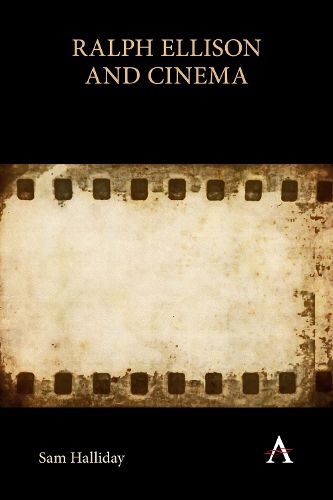Readings Newsletter
Become a Readings Member to make your shopping experience even easier.
Sign in or sign up for free!
You’re not far away from qualifying for FREE standard shipping within Australia
You’ve qualified for FREE standard shipping within Australia
The cart is loading…






Ralph Ellison and Cinema reveals the crucial role of cinema throughout Ellison’s career. In his most famous work, Invisible Man (1952), cinema is part of a cultural and institutional landscape; as such, it is integral to the way the novel’s protagonist feels and thinks. In Ellison’s critical essays, cinema is simultaneously a crystallization of racial prejudice, a vehicle of ideas about history, and an index of the variously illusory and the revelatory character of dreams. But it is in his monumental, unfinished second novel, posthumously published as Three Days Before the Shooting … (2010), that Ellison’s thinking about cinema is brought to its imaginative and theoretical peak. Here, Ellison gives full rein to a sensibility that is both cinephile and cine-sceptical; in the book, Ellison is as much concerned with cinematic form as he is with cinematic content. To chart the breadth and depth of Ellison’s cinematic interests, Ralph Ellison and Cinema discusses the author’s major works alongside private correspondence, Hollywood films in which Ellison took particular interest, and marginalia in the author’s personal library. Ralph Ellison and Cinema also provides a detailed account of the intellectual and social contexts in which Ellison’s works took shape.
$9.00 standard shipping within Australia
FREE standard shipping within Australia for orders over $100.00
Express & International shipping calculated at checkout
Ralph Ellison and Cinema reveals the crucial role of cinema throughout Ellison’s career. In his most famous work, Invisible Man (1952), cinema is part of a cultural and institutional landscape; as such, it is integral to the way the novel’s protagonist feels and thinks. In Ellison’s critical essays, cinema is simultaneously a crystallization of racial prejudice, a vehicle of ideas about history, and an index of the variously illusory and the revelatory character of dreams. But it is in his monumental, unfinished second novel, posthumously published as Three Days Before the Shooting … (2010), that Ellison’s thinking about cinema is brought to its imaginative and theoretical peak. Here, Ellison gives full rein to a sensibility that is both cinephile and cine-sceptical; in the book, Ellison is as much concerned with cinematic form as he is with cinematic content. To chart the breadth and depth of Ellison’s cinematic interests, Ralph Ellison and Cinema discusses the author’s major works alongside private correspondence, Hollywood films in which Ellison took particular interest, and marginalia in the author’s personal library. Ralph Ellison and Cinema also provides a detailed account of the intellectual and social contexts in which Ellison’s works took shape.